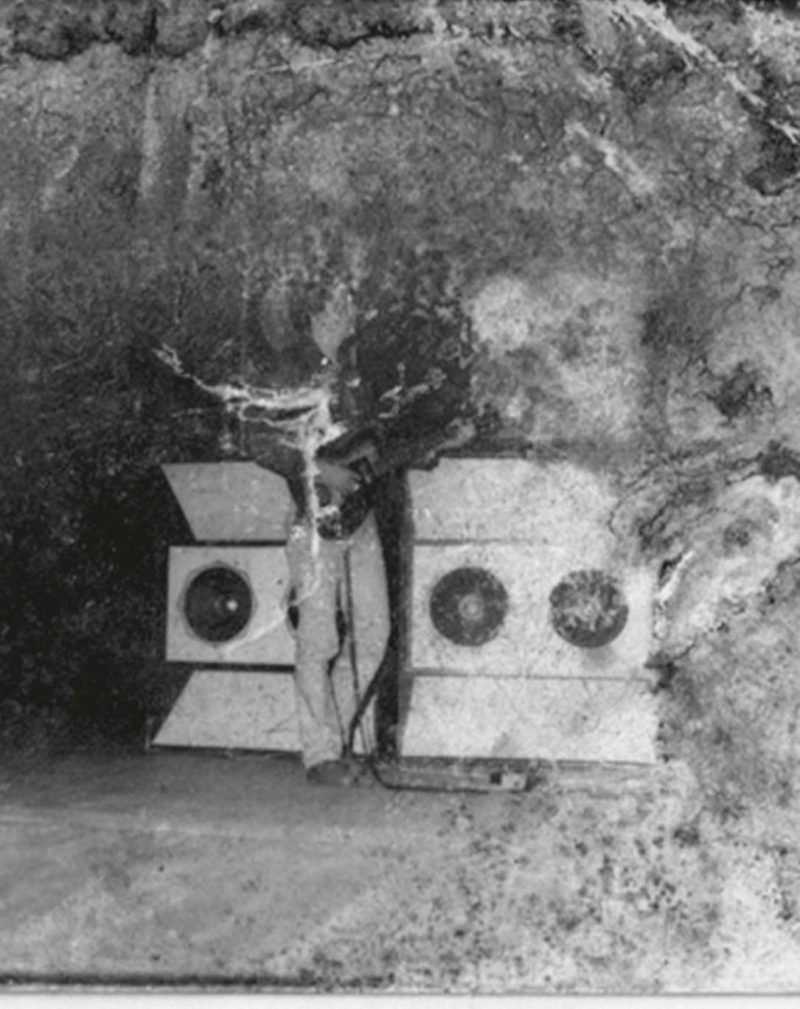Rodion G.A.

Born in 1953, the year Iosif Vissarionovich Dzhugashvili Stalin died, Rodion grew up listening to music from the radio, especially brass bands which made a strong impression through its sobriety, energy and expressiveness.
“For me, making music was a way to unload the vast amount of energy I had. I was always cranking up the volume, singing along, drumming with forks, spoons, better said with everything that surrounded me. I was always a noisemaker.”
The 60s and 70s in communist Romania enabled children and youngsters to develop their technical curiosities through books, DIY kits and Russian devices. This is the context in which Rodion Ladislau Roşca developed his interests for mechanics and electronic devices.
“My mother gave me the most beautiful presents such as ‘The little electrician’ kit or ‘The little mechanic’ kit. Having played with those things stimulated my skills and I always felt an profound pleasure working and making plans.”
He started with clarinet when he was 8, following an electric guitar in 1967.
“I have made my first compositions in 1969 using the tape recorder of a friend. I recorded my ideas for fear of not forgetting them. The next step was to add voice one and voice two simultaneously. These were my first multi-track songs, a full-blown orchestra in which I played every instrument. I was the first Romanian musician who did that in those times. In 1971 I had hundreds of short ideas waiting to be developed. One day I have decided to make a complete track, and so I have made one with the few English words I knew ‘come on, come on’. I see it as a pearl regarding its melody and sensibility. Right after, it followed ‘What is with me’, ‘Here we are’ 1972, ‘Piatra’ 1973, ‘Cine te crezi tu? (Who do you think you are) 1973.”
It was in 1975–76 that Rodion formed ‘Rodion G.A.’ with Gicu Fărcaș and Adrian Căpraru, and became a DIY tech wizard. He started to improvise and compose more and more using reel-to-reels and surrounded himself with three or four Tesla tape machines—one of them transformed into an echo machine—, an East German Vermona drum machine, a toy Casio VL Tone and a little Soviet-made Faemi organ to which he added phaser, flanger and fuzz pedals. Even so, he kept on composing in the intimacy of his room like a madman. By the end of the 70s the atmosphere became grim across the country.
“During the communist regime I was constantly followed by the god damned police, either for my long hair or the music I was listening to. All I wanted was to fled the country.”
As to openly oppose the regime, he knew there was a chance to get in serious trouble so he didn’t want to cause any sorrow to his mother. Talking about the artist’s status in that period,
“Our band was acknowledged from the beginning as the first Romanian electronic band. My songs were number one both on radio and TV, they have been soundtracks for TV programs, documentaries, animations and theatre plays. I was always praised for my work and considered a pioneer. I am not modest, I know my value.”
In 1978 he started to send tapes to local radio stations and in a short time his tracks were heard everywhere. The first concert came in 1980 but his songs were so complex that they couldn’t have been performed in their original form. He needed more musicians for that but the scene was scarce. Rodion G.A. were very famous, so famous that only two tracks were released on a compilation. The irony... And still no proposal for an album release.
“‘Moment’ was the first song to be aired on the radio in November 1978. The choral part stirs me. It has a brilliant structure, must have been sent from above, otherwise I cannot seem to get how it came up to me. Even after 35 years I ask myself how and still no answer. For me, this song is an energy giver. In ‘Paradox’ the sound is ample and unusual for those times. ‘Stele si lumini’, another sound monument, with a thousand watts ‘orchestra’. They are my beloved ones together with ‘Cantec fulger’, ‘Dans macabru’ and ‘Imagini din vis’.”
These are his darlings waiting for thirty years to be released.

In terms of composition, he is a man of layers, a man of archive.
“I have a complex mind and I analyse a subject from different angles and perspectives. Sometimes, while working on a track, I get tired or bored. I stop and I lay it aside so that after days, years or months I can rediscover it and eventually finish it. Listening to the final result I get more ideas and I work more on it until I think there is nothing to add. Other times, I get ten more ideas from a track and I finish it a couple of hours.”
No wonder nobody can place his music in a concrete genre. As for me, I find the status ‘the father of Romanian new wave’ a bit exaggerated because it lacks a historical and political context. As form, some tracks have the new wave vibe but form is not always everything. Considered the king of records in Cluj, he avoided making the same music as the one he was listening to (THE BEATLES, THE ROLLING STONES, BEE GEES, APHRODITE’S CHILDS, MANFRED MAN, THE WHO, CLIFF RICHARD, LED ZEPPELIN, FRANK ZAPPA, BLACK SABBATH or KRAFTWERK). Whatever he does comes organically, instinctively, following unknown paths, connections and logics. That is what makes his music unique and alive.
One can say that Rodion was born under a sign of constraints: political, financial, social. And even so, aren’t constraints stimulating creativity? I guess he is the answer to this question.